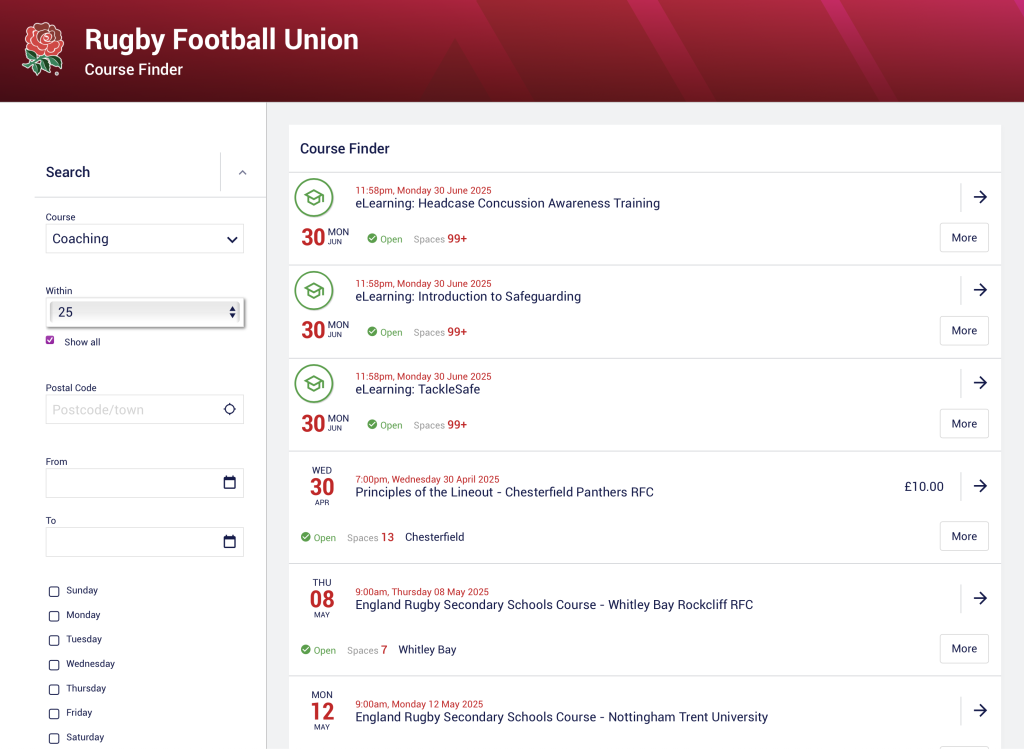About ECRU
Eastern Counties Rugby Union (ECRU) serves as the governing body for rugby union across Cambridgeshire, Norfolk, and Suffolk. Established in 1890, ECRU has been pivotal in fostering the sport's growth and upholding its core values within these regions.
Our mission is to govern, promote, and develop the quality of rugby in the Eastern Counties, ensuring the game's integrity and accessibility for all.
ECRU aspires to be a leading force in English rugby, nurturing talent and creating opportunities for players, coaches, referees, and volunteers. We are committed to building an inclusive environment for all; that embraces diversity and strengthens the growth of our sport at every level.

Harriet Walachowski
ChairOur Role
Development Programs
We offer comprehensive pathways for players from grassroots to elite levels, ensuring that talent is identified and nurtured effectively.
Community Engagement
Partnering with clubs, schools, and organizations to promote rugby’s core values - Teamwork, Respect, Enjoyment, Discipline, and Sportsmanship.
Coaching & Referee Support
By providing training and resources, we enhance the skills of coaches and referees, ensuring the game's standards are consistently upheld.
Inclusive Opportunities
We are dedicated to offering rugby experiences for all ages, genders, and abilities, ensuring everyone has the chance to participate and enjoy the game.
Governance & Support
As a Constituent Body of the Rugby Football Union (RFU), we provide guidance, governance, and support to our affiliated clubs, ensuring the sport is played safely and enjoyed widely.
Key Contacts
Whether you need assistance with club development, player registration, competitions, or governance, our team is here to help. We provide direct points of contact for various areas of the game, ensuring you can quickly find the right person to support your needs.
Whether you're a player, coach, referee, or club administrator, use our contact directory to connect with the right department or individual.
Competitions Lead
Player Pathway Lead
Coaching Development Lead

Structure
Eastern Counties Rugby Union operates through a well-established governance structure that ensures the smooth running of rugby across Cambridgeshire, Norfolk, and Suffolk.
Our committees and leadership teams work together to support clubs, develop the game, and uphold the core values of rugby.
Whether you're a club official, volunteer, or player, understanding how ECRU is structured can help you navigate the support and resources available.
Our History
With a rich heritage dating back to 1890, Eastern Counties Rugby Union has been at the heart of rugby development in the region.
Over the decades, we have played a key role in shaping the game, nurturing talent, and supporting clubs at all levels. From grassroots initiatives to representative teams, our history is filled with milestones that showcase our commitment to growing the sport.
Take a journey through time and explore the legacy that has made ECRU what it is today.
EC Vacancies
Rugby thrives because of the dedication of players, coaches, referees, and volunteers who contribute their time and passion to the game.
If you’re looking to get involved, we offer a range of opportunities, from coaching and officiating roles to administrative and volunteer positions. Whether you’re an experienced professional or just starting out, there’s always a way to support the growth of rugby in Eastern Counties.
Check out the latest openings and see how you can make a difference.

